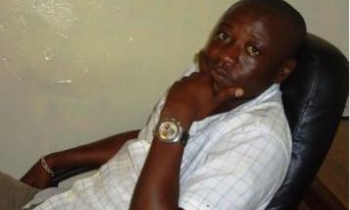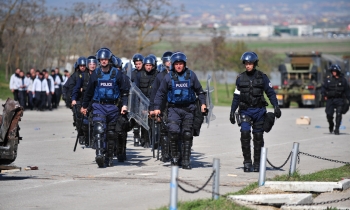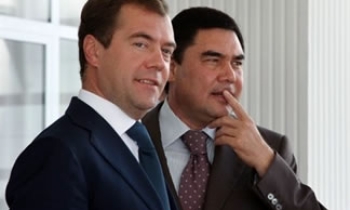Alan Johnston, the BBC journalist held hostage in Gaza, was freed and handed over to Hamas officials early on Wednesday after a late-night deal with the al Qaeda-inspired group that abducted him in March.
The 45-year-old Briton was embraced by BBC colleagues after he arrived by car at the home of Hamas's local leader in Gaza, Ismail Haniyeh. Johnston was smiling and looked well despite four months in captivity as he was ushered inside amid a scrum of wellwishers and security guards with Kalashnikov rifles, Reuters reported.

Johnston, the only western correspondent working full-time in Gaza, was abducted on March 12. His captors later declared themselves to be the Army of Islam, an al-Qaida-inspired group with links to one of Gaza's powerful clans, the Dogmush. Concern grew last month when the group issued a video of Johnston in what appeared to be a vest packed with explosives, and threatened to kill the reporter if there were attempts to free him.
The BBC correspondent's release, a Guardian report said this morning, came after Hamas security forces surrounded a group of buildings in Gaza City yesterday, where he was believed to have been held. Hamas had issued several ultimatums to his captors, warning that force could be used to secure his freedom.
According to Guardian, arom 5.30am yesterday, members of the Hamas police, the Executive Force, took over the rooftops of high rise apartment blocks that overlook the stronghold of the Dogmush family in the Sabra district of Gaza City. The activity was considered as part of a policy to increase pressure on the kidnappers. The forces closed off all streets in the area and checked cars and individuals who wanted to leave the area. There was sporadic shooting throughout the day and one passerby was shot dead in crossfire.

The Dogmush family is a large clan which has several groups, one of which, under Mumtaz Dogmush, has been involved in several kidnappings, including that of Johnston. The Army of Islam was involved in the abduction of the Israeli soldier Gilad Shalit more than a year ago, although it was sidelined soon afterwards, the Guardian report said.
As darkness fell last night, dozens of Hamas gunmen in black masks moved closer to the Dogmush compound, a mixture of apartment blocks and commercial premises. The breakthrough was said to have come after pressure from another militant group, the Popular Resistance Committees, who visited the Mumtaz Dogmush to help negotiate a final agreement, the Guardian reported.
Since Hamas has taken control of Gaza, its leaders have repeated their intention to free Johnston, to demonstrate that they can provide better security in Gaza than the forces of the Palestinian Authority and Fatah which they routed in street battles two weeks ago.
BBC's Middle East bureau chief Simon Wilson told Reuters after speaking to Johnston by telephone: "He sounded well, he sounded fine. He sounded so amazingly composed ... He sounded tired. He just wanted to say thank you to everybody round the world (who had been campaigning for his release)."

A previously little-known militant group, the Army of Islam, claimed it was holding Johnston and had released videos demanding the release of Muslim prisoners in British custody. The group had said it would kill its captive if its demands were not met.
Speaking over the telephone, Johnston thanked everyone who had worked towards his release. "It is the most fantastic thing to be free," he said. He described his experience of captivity as "appalling" and "occasionally quite terrifying".
"It became quite hard to imagine normal life again," he said. "I literally dreamt many times of being free and always woke up back in that room." He said he was looking forward to being re-united with his family in Scotland. Johnston said he stayed aware of efforts to free him by listening to the BBC World Service on the radio.









